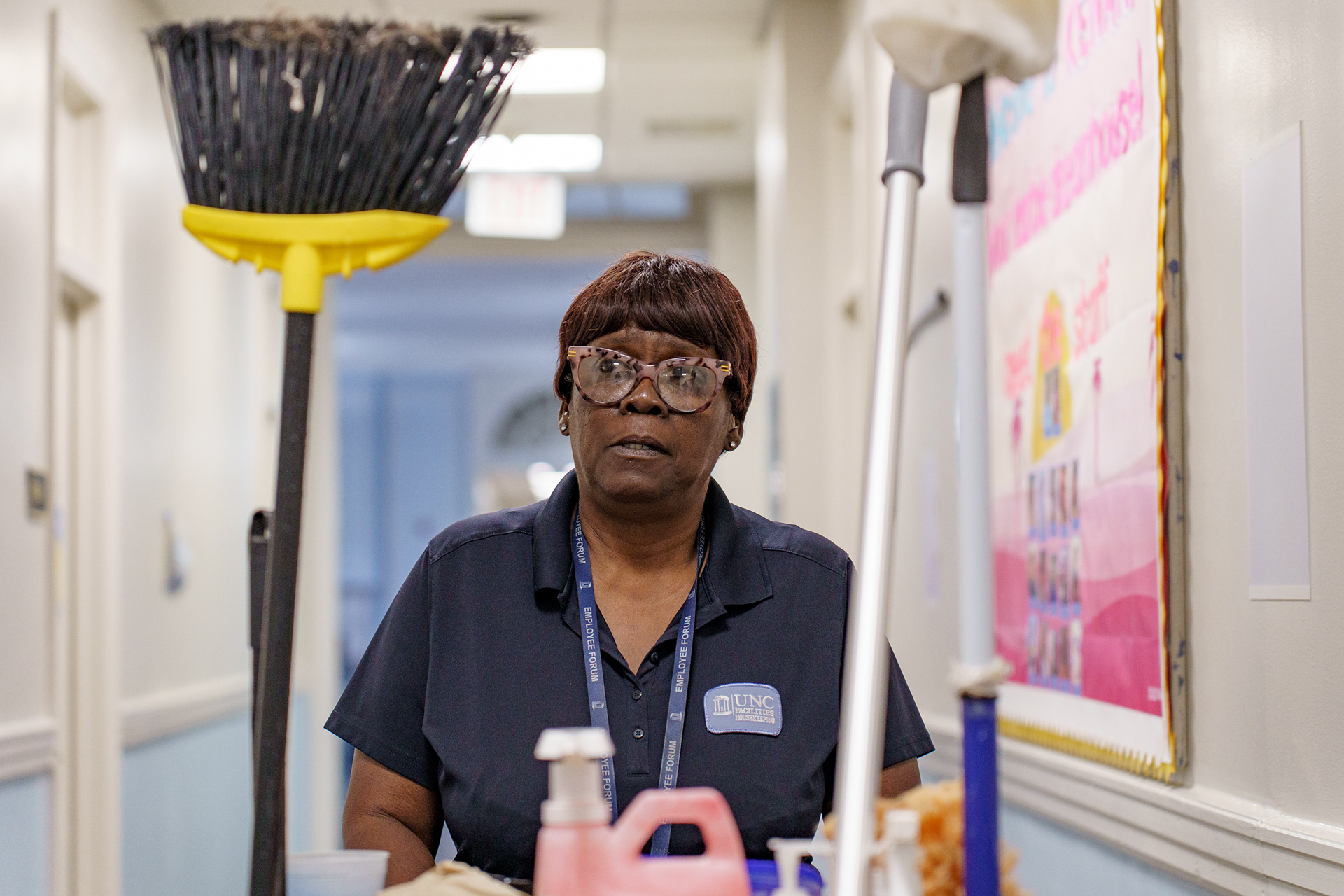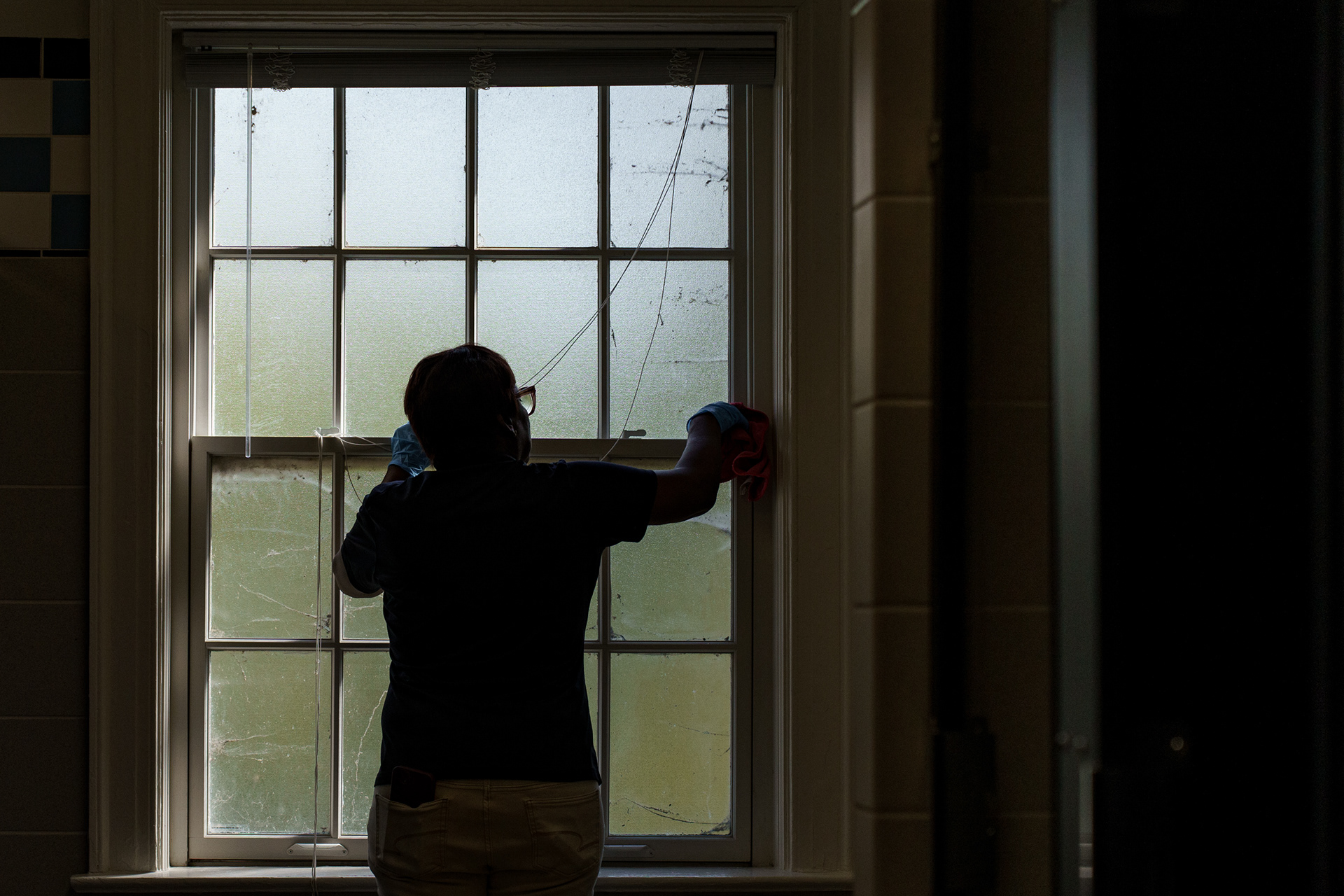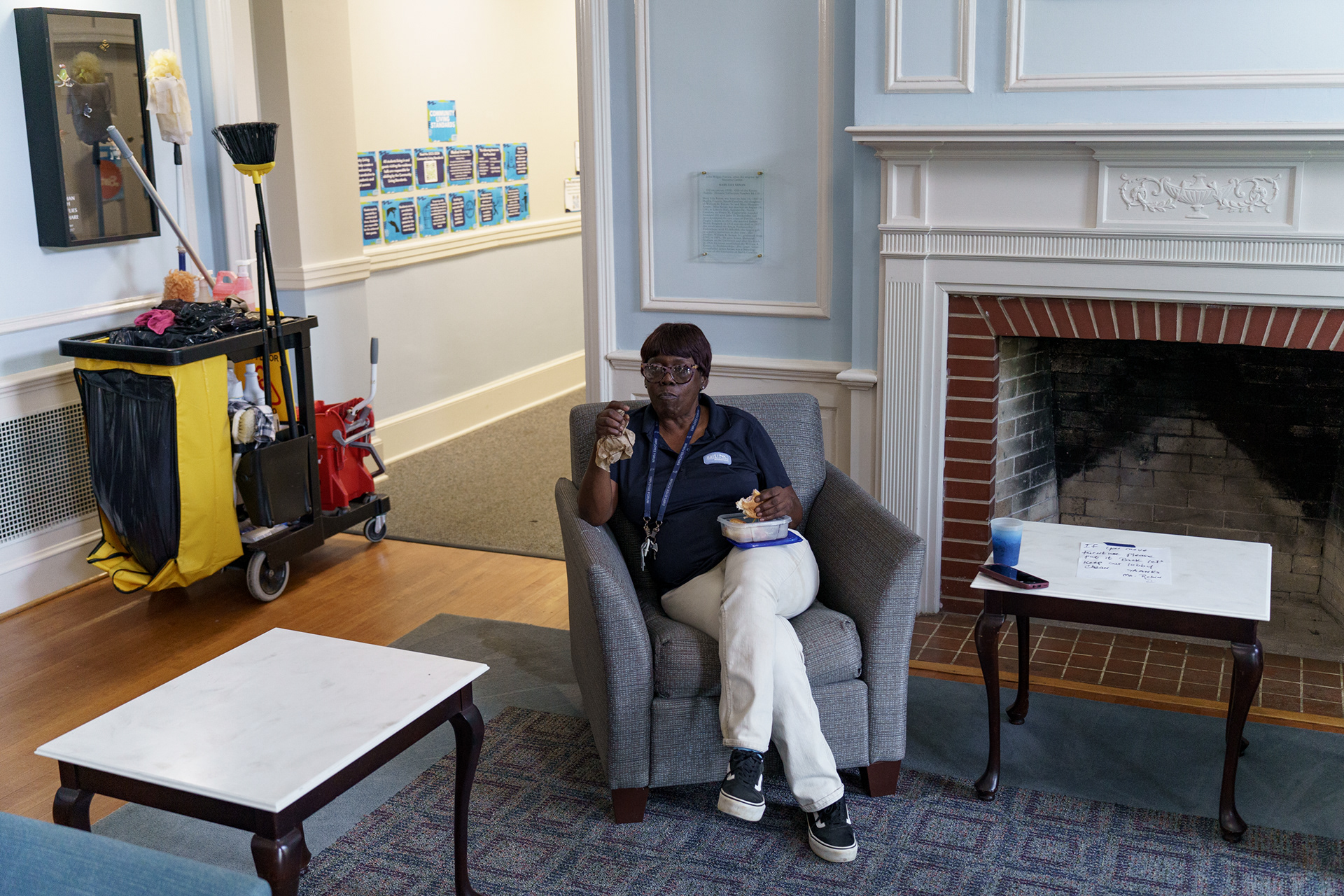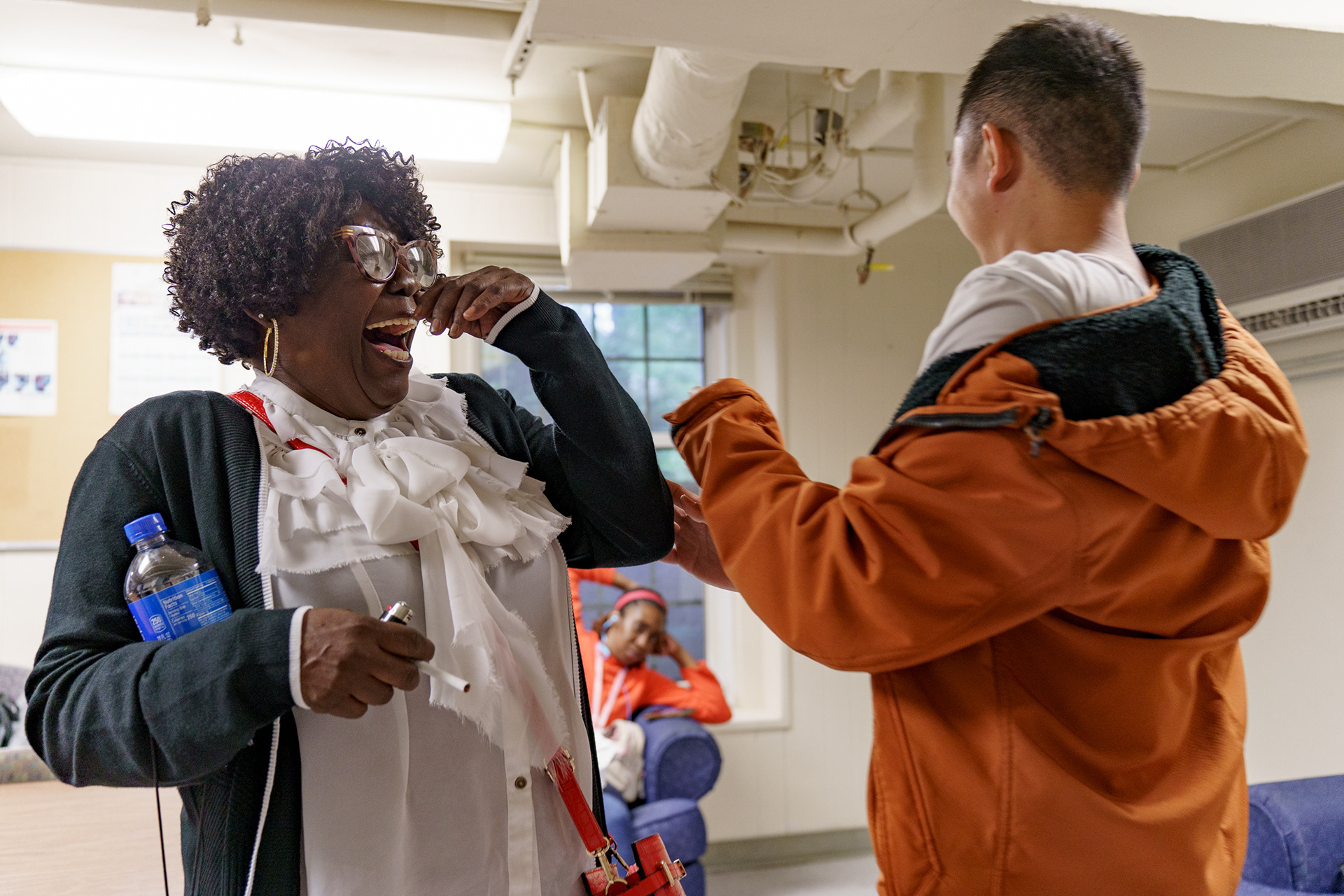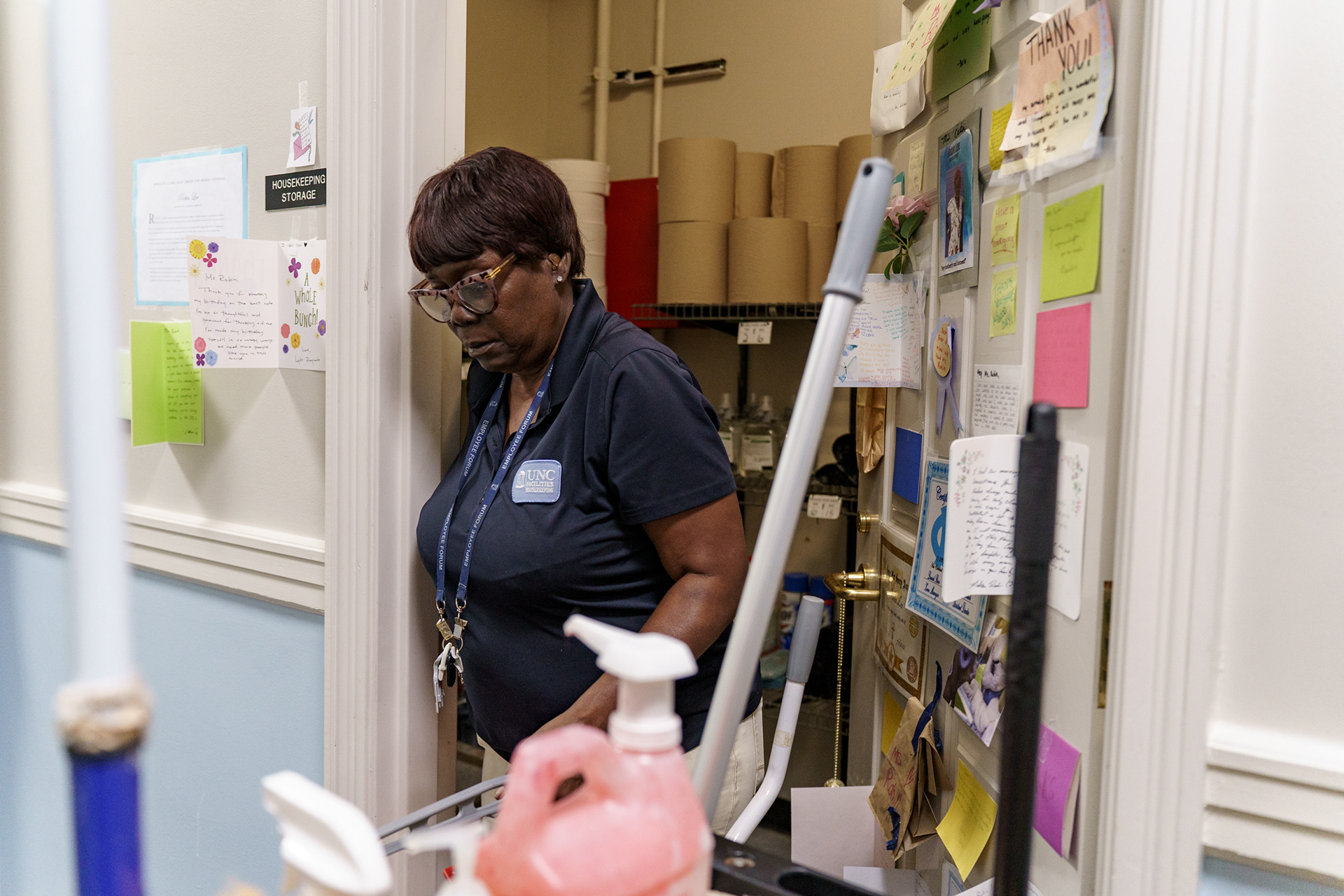
Robin Lee, 63 years old, has retirement just around the corner. She’s been working as a housekeeper at UNC Chapel Hill for the past four years, and as a state employee for the past 20. With a recent wave of understaffing, the housekeepers’ jobs have gotten harder than ever, but their pay still hasn’t risen to reflect that or the cost of living crisis. Now, Robin works from 6 to 4 Monday through Friday, and then works a second shift from 4-8 three days a week. “My body is feeling like I’m ready to retire,” she groans as she sits down one morning.

Robin’s daily duties take her across the North Campus dorms every morning before most students are even awake. She clocks in at 6 am every morning in the basement of Cobb, then cleans two floors of Stacy and finishes her day cleaning the entirety of Kenan. The housekeeping team has experienced staffing shortages lately, which is why Robin has been cleaning Stacy too. Despite this increased workload, her wages haven’t increased. “It’s not enough,” says Robin. “I’m exhausted. I keep telling myself I need some time off.”

When she was hired, Robin was told that she wasn’t allowed to sit in the lobby of Kenan, the dorm she is single-handedly responsible for cleaning every morning. Now she eats her lunch in the lobby every day, just hoping for somebody to tell her she can’t sit there. As the president of the union she’s had her share of clashes with administration, but despite that she says, “I try to keep a smile on my face even days when I don’t want to smile.”

Robin walks out of the dining hall to smoke a cigarette with her fellow housekeepers one afternoon. Last year, she was the one who began the entire housekeepers’ movement for a raise to $20 an hour. “I’m not bringing no money home, and they’re not bringing no money home,” she said. Her efforts got her elected as president of the housekeepers’ union. A year later, no progress has been made towards a raise, and many housekeepers are dropping the cause. “I’m still fighting for them even though I don’t have no backup,” says Robin. “It just seems like I’m doing it all by myself.”

“I love my coworkers,” says Robin. “I don’t care what nobody says, zone 213 is the best on campus.” After a quiet morning cleaning the dorms, she laughs with Saw Moo, a former zone 213 employee who came back to visit. “We all fell in love with him,” she says after he leaves. It’s this love for her coworkers that initially inspired Robin to fight for a pay raise for everyone.

The doors won’t unlock for the housekeepers until 6, and every morning Robin is ready outside that door. “Frankly, some mornings you don’t want to get up,” she says as she walks in. She doesn’t have much of a choice though. Her shift doesn’t technically start until 7, but without that small bit of overtime she would be bringing home even less money than she already does. In recent weeks her arthritis has worsened, making it painful for her to even walk around, especially in the morning. “When I get like that I have to take multiple breaks and sit down and pull myself together,” she says.

As the president of the housekeepers’ union, Robin does trainings to learn how to better help her coworkers. However, with less and less of her coworkers being active within the union, she’s struggling to stay motivated. “If you want me to fight for you, be behind me,” she says in frustration. With her retirement less than two years away, Robin is barely even fighting for herself anymore. Rather, it’s for all her coworkers that she’s striving for a livable wage, but she’s not feeling the support that was there last year.

As her arthritis acts up Robin takes a break leaning against the door. It’s decorated with letters from her current and former residents in Kenan, as it’s been her building since she was hired. “I try to talk to every last one of the young ladies that’s in my dorm,” says Robin as she works. “When I get to know them it’s just like I’ve got almost 200 grand babies in one building.” More than anything, it’s seeing her residents every day that keeps Robin going. “I make sure to say good morning to each and every one of them that I see in the hall, and they say good morning back,” says Robin. “So that makes me feel good.”
